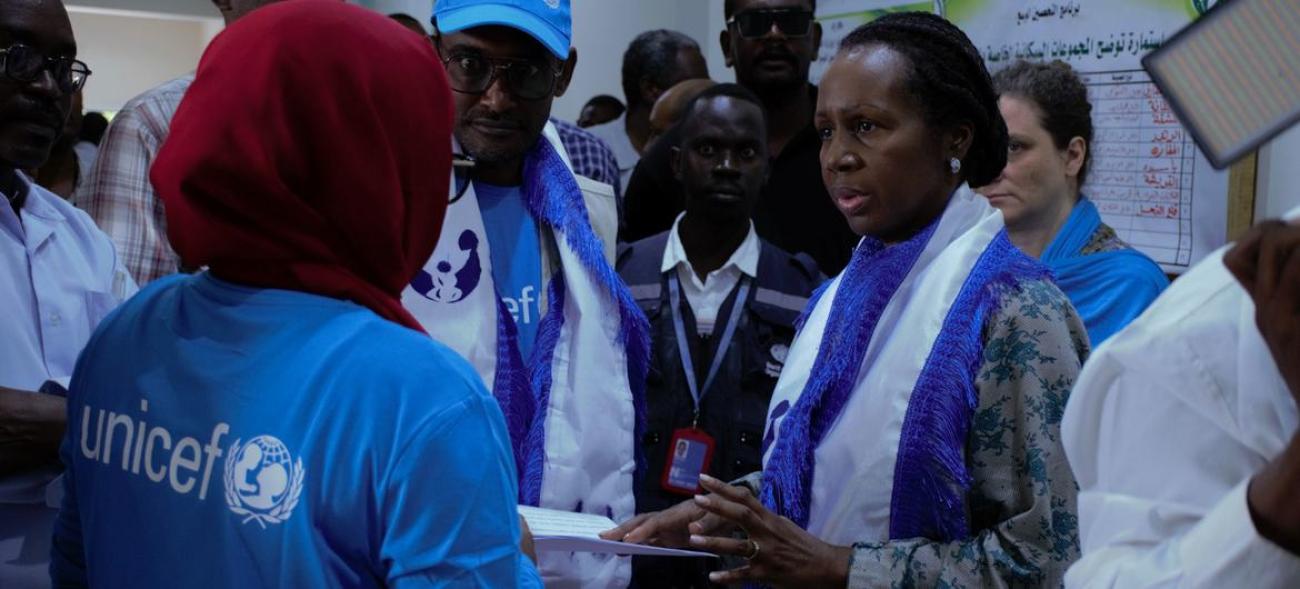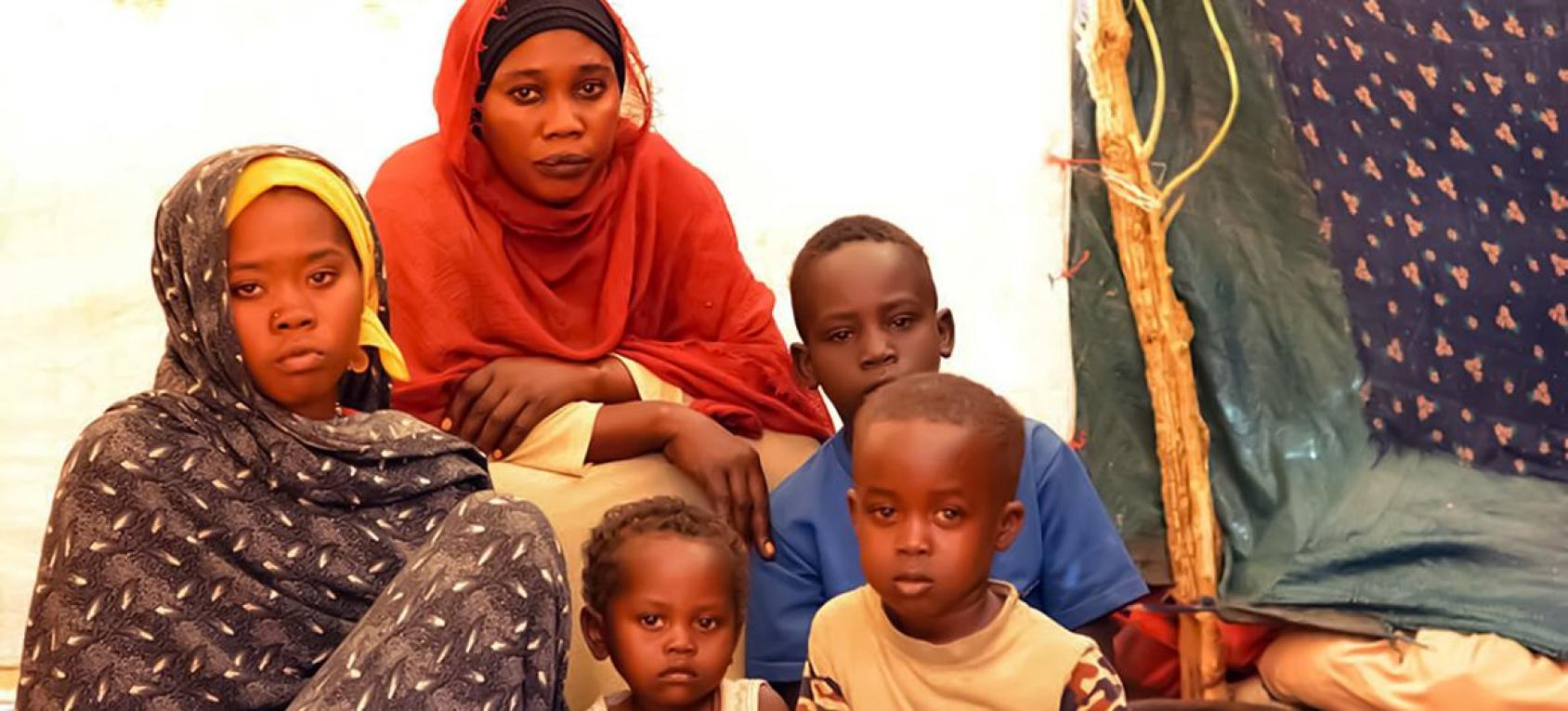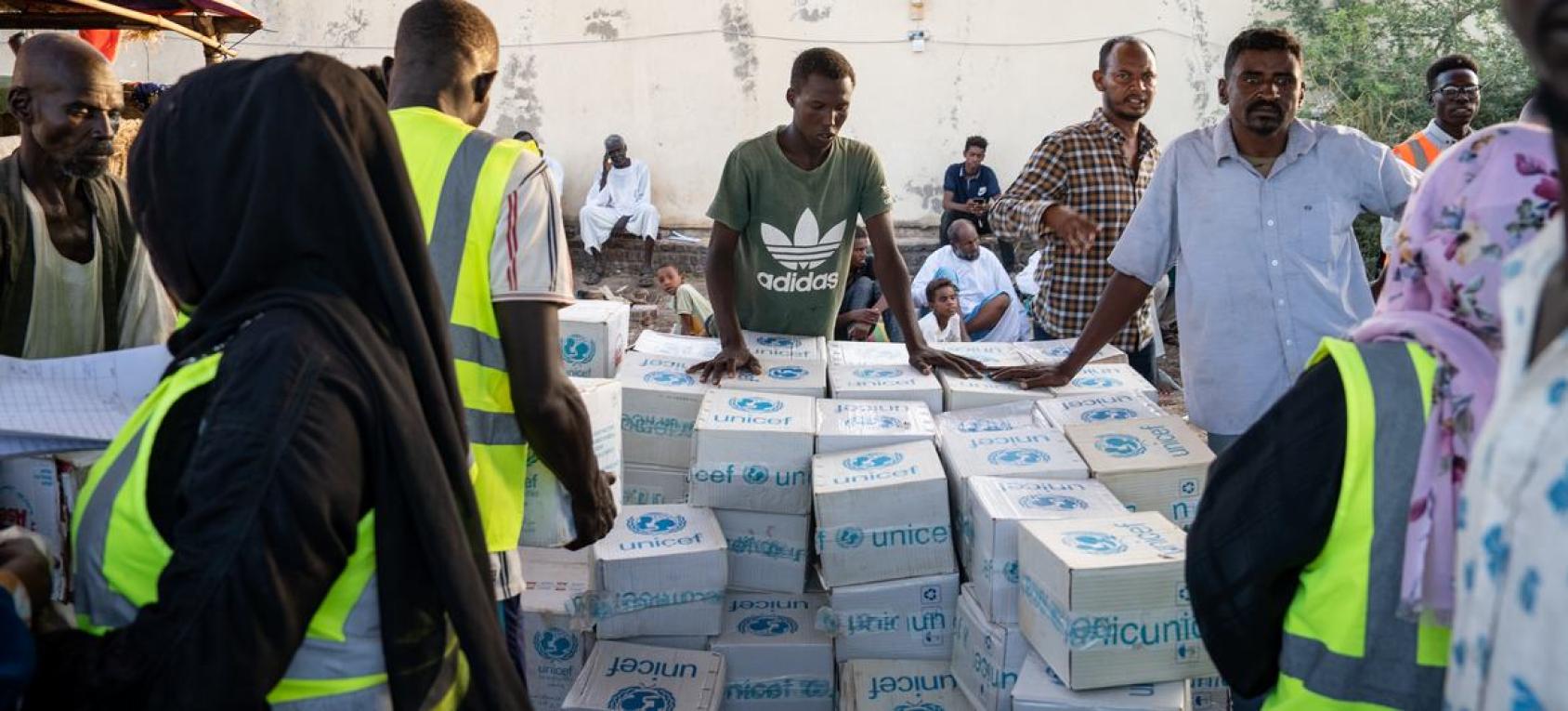Sudan Two Years On: Lifesaving Coordination against Famine and Funding Gaps

A staggering number of people in Sudan are impacted by the two-year war raging in the country between the Sudanese Armed Forces (SAF) and former ally, the Rapid Support Forces (RSF). The devastating conflict has precipitated a catastrophic humanitarian crisis, demanding an urgent and large-scale response. This year, humanitarians are seeking $4.2 billion to support 30 million people while 12 million people have been forced to flee their homes to other areas in the country, or across the border.
The crisis has highlighted the critical role of the UN Resident and Humanitarian Coordinator (RC/HC) on the ground. The job description of the RC/HC includes “coordinating the operational activities for development of the UN” while “leading and coordinating the response efforts of the Organization and relevant humanitarian actors.” The RC/HC also facilitates the UN country team’s work with UN peacekeeping to “fully contribute to building resilience, prevention and peace.”
Clementine Nkweta-Salami is the UN’s RC/HC in Sudan, coordinating the work of UN agencies across the humanitarian, development and peacebuilding aspect to ensure a coherent response. She recently spoke to UN News on the commitment of the UN and partners to address the catastrophic and wide-ranging needs of the Sudanese people, from food and medicine to protection.

The interview has been edited for length and clarity
Clementine Nkweta-Salami: The humanitarian situation is catastrophic; I think we've used that adjective many times now. We are almost two years into the conflict, and we would have hoped to have been able to ensure that we could provide humanitarian assistance comprehensively to those in need.
We’re still struggling. We don’t have access to all the hotspot areas. We are trying our best to make sure that the resources we have can be moved out as quickly as possible using all the modalities that we have available to us.
But the displacement is significant, the needs are enormous, we’ve already had famine identified in some parts of the country, and we’re working against the clock to try and prevent it spreading.
So, all in all, I would say that we still need to make a mammoth effort. We still need support from the international community in terms of resources, and we still need greater facilitation by all the armed groups engaged in this conflict.
UN News: Famine conditions have been confirmed in some areas in Sudan, particularly the Zamzam camp in North Darfur. You mentioned that there's also the chance of it spreading to other parts of the country. How worrying is this?
Clementine Nkweta-Salami: Very worrying. If you allow me to just perhaps turn to the situation in Darfur. El Fasher remains under siege, with civilian populations trapped for many months, and they face daily shelling, displacement and rapidly deteriorating humanitarian conditions.
Many of the populations have wanted to leave. They’ve been prevented from leaving. Many of them have moved many times, and the situation is very dire.
We are very, very concerned, and I strongly condemn the intensifying deliberate attacks on civilians - particularly those in North Darfur but other parts of Darfur as well, and more recently, the airstrike on the market where we registered a significant loss of life.
I’ve mentioned international humanitarian law before. I think particularly in the Darfurs the protection of civilians is key, and we remind the parties as often as necessary to take all feasible precautions to avoid civilian harm, to provide safe and hindered passage for civilians seeking to flee areas of active conflict.
Now, coming to the actual levels of food insecurity, let me just say that the situation at the Zamzam camp is catastrophic: severe shortages of food, water and medical supplies; the prices of basic goods have skyrocketed, making essential items unaffordable for most families, and Zamzam is a site in which famine conditions were identified last August and re-confirmed in December.
We also had areas in Khartoum at risk of famine, and also in the Kordofans and in the Blue Nile state as well.
UN News: You mentioned attacks, and humanitarians are also under fire. Can you talk about how the insecurity and the fighting affect aid delivery?
Clementine Nkweta-Salami: We have lost an unacceptable number of humanitarian actors during this conflict, and humanitarian actors shouldn’t lose their lives trying to provide support to those in need.
There is conflict in various parts of the country. Khartoum previously was a hot spot, but the Darfurs continue to be a hot spot, more significantly around the border area with Chad, El Fasher and of course Zamzam. We also have hot spots in Nyala and now very recently in the Kordofans where we have seen an uptick in fighting, and also the Blue Nile.
The security situation is impacting our work negatively. But even where there is conflict, humanitarian workers are willing – and do have means and methods of being able to access these locations.

UN News: You’ve outlined the challenges, but also the work that the UN and partners are doing to bring aid to people in Sudan. This is taking place against the backdrop of an immense shortfall in funding for humanitarian operations worldwide this year.
Clementine Nkweta-Salami: Indeed, we are concerned that we will not be able to obtain a level of funding for this crisis that would allow us to address the urgent needs of the population.
We have been informed by some of our donors that there will be reductions in the resources that they will make available to us during the course of this year.
I think it’s important to know that since this crisis began, the humanitarian needs have only grown. We started 2024 with about 24 million people. We ended with about 30 million people.
[Looking at] our Humanitarian Needs and Response Plan, the figures seem to be quite high but when you break them down it’s about 50 cents per person per day.
People are in a dire situation and we appeal to the international community not to forget Sudan, not to forget the men and the women and children of Sudan who find themselves in this very difficult situation at this moment in time.
Read the full interview on UN News here and for more about the work of the UN in Sudan visit sudan.un.org













